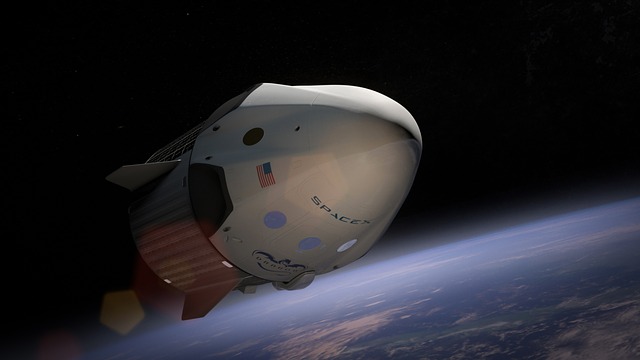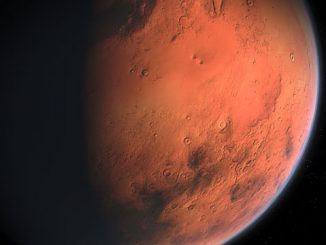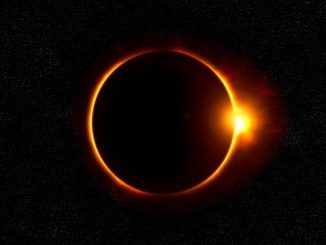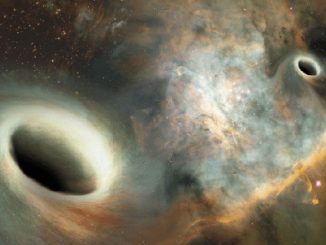
Space has always been one of man’s greatest fascinations.
“What’s out there?” must have been a question that’s been asked countless of times since the first time that man gazed up at the sky.
The stars, the sun, the moon, the comets, and meteor showers. These are only a few things about the universe that have held our awe and imagination captive.
There were cultures which had even worshipped the sun.
Other ancient people had looked upon the moon as a goddess.
Myths and legends surround those mysterious celestial bodies.
And there was even a time that the world believed that everything out there revolved around Earth.
Today, we know a lot of things about space. But, we also admit there’s a whole lot more to discover!
Is there another life out there? That becomes our next question.
Reading about Elon Musk and SpaceX (Space Exploration Technologies Corporation), the company founded by the Tesla (NASDAQ:TSLA) CEO in 2002, we came across the following words which statement-wise must be one of his most stirring ones: “If the future does not include being out there among the stars, and being a multi-planet species, I find that incredibly depressing if that’s not the future we’re going to have.”
These words reflect what many of us, if not most, have been desiring in terms of one day that dream turning into reality.
With SpaceX, Musk is somehow able to live part of that dream. In fact, through his California-based company and its grand project, he has already planted the seeds of that dream and has made history in the process.
- September 2007: Falcon 1 becomes the first privately-developed liquid fuel rocket to have reached Earth orbit.
- July 2009 : Falcon 1 Flight 5 is the first privately-developed liquid fuel rocket to make a successful delivery of a commercial satellite to Earth orbit.
- December 2010: SpaceX became the only private company ever to return a spacecraft from low-Earth orbit (LEO). LEO, according to the National Aeronautics and Space Administration (NASA), is the first 100 to 200 miles (161 to 322 kilometers) of space.
- May 2012: SpaceX’s Dragon spacecraft made a successful cargo delivery to and from the International Space Station (ISS) which governments were the only ones which used to be able to accomplish. From then on, Dragon has delivered cargo to and from ISS and assisted NASA through regular cargo resupply missions.
- September 2014: SpaceX gets awarded a $2.6 billion NASA contract to fly American astronauts to the International Space Station.
- January 2015: The company started to conduct a series of first stage landing attempts on a spaceport drone ship that was of autonomous type.
- May 2015 : Launch abort system was tested by Crew Dragon, which can provide escape capability to astronauts all the way to orbit.
- March 2017: SpaceX’s first reflight of an orbital class rocket was a success, paving the way for full and rapid rocket reusability
With this kind of record, it’s no longer surprising that it’s been predicted that SpaceX will have commercial launch dominance for decades to come.
By next year, the company could have full mastery of reusable rockets which don’t need any refurbishment for relaunch.
SpaceX is already leading the market in low-cost launch with more means to cut costs through fully reusable generation one capability. This aspect is what will make the commercial market grow, in spite of the fact that the space industry is currently dominated by non-commercial payloads.
The company does not also have any serious competition at this point, and in the very near future.
Smaller payload companies like Cubecabs and Rocket Labs have a lot of catching up to do.
Based on a NextBigFuture report:
- Spacex will have approximately 20 launches this 2017.
- By 2018, the company has set a goal of 40 up to 50 launches.
- By 2019 and 2020, Spacex might be able to attain 100 up to 800 launches per year attributed to the company’s fully reusable rockets with no refurbishment and one-day turn-around.
Of course, Musk being who he is, is not going to stop there. You can expect more accomplishments and innovations from SpaceX, which is looking forward not only to future financial gains — but also in a future where humans can live among the stars.
Just the way Elon Musk’s dream happen to be.




What sources can you cite that say there is no serious competition?
Boeing also has a contract with NASA under the same requisition and many planned Commercial Crew launches. SpaceX is much better at marketing, so they have much more public exposure, but NASA sees them as the risky option.
Boeing have no plans to make a reusable rocket, why pay over $100m-300m per ULA launch when SpaceX will be able to do the same for just a few million or maybe even less! Where will that level of competition come from? Even China or the cheap India rockets cannot compete. Maybe Blue Origin will catch up but they have yet to even launch an Orbital class rocket yet alone reuse it.
Risky to whom? To the traditional military aerospace industry/machine, SX is the real enemy. SX is going to cost them billions.
Heck yes, they will dominate. This has been an accomplishment of a lifetime for Musk. They have come so far and still have a long way to go. http://www.spacex.com/elon-musk